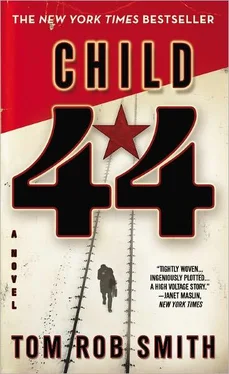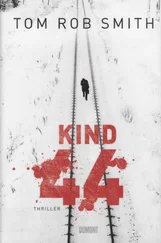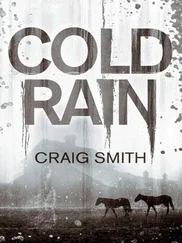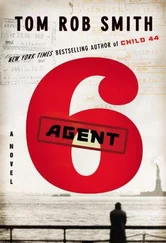Kuzmin stood by the window overlooking Lubyanka Square. He was squat and wearing, as he tended to do, a uniform one size too small for his frame. His glasses were thick and often slid down his nose. In short he was a ridiculous-looking man and not even the supreme power of life and death had bestowed upon him any gravitas. Although, as far as Leo was aware, Kuzmin no longer took part in interrogations it was rumoured that in his day he’d been something of an expert, preferring to use his small, fat hands. Looking at him now, it was hard to believe.
Leo sat down. Kuzmin remained standing by the window. He preferred to pose questions whilst looking outside. This was because he believed, and often reminded Leo, that outward displays of emotion should be treated with extreme scepticism unless the person was unaware that he or she was being observed. He’d become adept at appearing to gaze out at the view whilst actually watching people in the reflection. The usefulness of this trick was significantly reduced by the fact that almost everyone, including Leo, was aware they were being watched. And anyway very few people lowered their guard inside the Lubyanka.
— Congratulations, Leo. I knew you’d get him. The experience was a valuable lesson for you.
Leo nodded.
— Are you ill?
Leo paused. Evidently he looked worse than he imagined.
— It’s nothing. A cold perhaps but it will pass.
— My guess is that you’re annoyed with me for having taken you off the Brodsky case to make you deal with Fyodor Andreev. Am I correct? You think Fyodor was an irrelevance and I should’ve left you to continue the operation against Brodsky.
He was smiling, something amused him. Leo concentrated, sensing danger.
— No, Major, I’m not annoyed. I should’ve arrested Brodsky immediately. It was my fault.
— Yes, but you did not arrest him immediately. So, in those circumstances, was I wrong to take you off the case of the spy and make you speak to a grieving father? That is my question.
— I had only thought about my own failure to arrest Brodsky immediately.
— That’s evasive of you. My point is simply this: Fyodor’s family wasn’t a trivial issue. It was a corruption within the very MGB itself. One of your men had become twisted by grief and unwittingly made himself and his family enemies of the State. While I’m pleased you caught Brodsky, I considered your work with Fyodor the more important.
— I understand.
— Then we come to the matter of Vasili Nikiyin.
It was inevitable that his actions would be reported. Vasili wouldn’t hesitate to try and use them against him. Leo couldn’t presume on Kuzmin’s support or guess which aspect of the incident concerned him the most.
— You pointed a gun at him? And then you hit him? He says you were out of control. He says you were taking narcotics. They’ve made you irrational. He’s pushing for your suspension. He’s upset, you understand.
Leo understood perfectly: the executions were not the issue here.
— I was ranking officer and I gave an order. Vasili disobeyed. How can I maintain the line of command, how can any of us maintain command, if orders are ignored? The system collapses. Perhaps it’s my military background. In military operations disobedience and insubordination are punishable by death.
Kuzmin nodded. Leo had chosen his defence wisely — the principles of military decorum.
— You’re right, of course. Vasili is hot-headed. He admits as much. He disobeyed an order. This is true. But he was enraged by the family’s collaboration. I’m not condoning what he did, you understand. We have a system in place for such violations. They should’ve been brought here. And Vasili has been appropriately reprimanded. As for the drugs—
— I hadn’t slept in twenty-four hours. And they are supplied to me by the doctors here.
— They don’t concern me in the least. I told you to do whatever it takes, which I suppose extends to taking whatever it takes. But I wish to give you a word of warning. Hitting a fellow officer gets you noticed. People will quickly forget that your reasons were sound. As soon as Vasili lowered his gun that should’ve been the end of it. If you wished to punish him further you should have reported his insubordination to me. You took justice into your own hands. That is not acceptable. That is never acceptable.
— I apologize.
Kuzmin moved away from the window. Standing by Leo’s side, he put a hand on his shoulder.
— Enough of all that. Consider the matter closed. I have a different challenge for you: Brodsky’s interrogation. I want you to handle it personally. You may call on whoever you like to assist you — a specialist interrogator — but I want you to be present when he cracks. It’s important that you see this man for who he really is, particularly since you were duped by his apparent innocence.
It was an unusual request. Kuzmin noted Leo’s surprise.
— It will be good for you. We should measure a man by what they’re prepared to do themselves. Not by what they’re prepared to have others do for them. Do you have any objection?
— None.
Leo stood up, straightening his jacket.
— I’ll begin immediately.
— One last thing: I want you and Vasili to work together on this.
There were three types of cell. There were the holding cells: square rooms, a floor covered with straw, with enough space for three adult men to lie side by side. There were always five men in any one cell, packed so tightly that one man couldn’t scratch himself without the others also moving, a human jigsaw of limbs. Since there was no latrine, space also had to be made for the bucket which the men were obliged to use in each other’s company. Once it was brimming prisoners were made to carry it to the nearest drain and told that if they spilled even the smallest drop they would be shot. Leo had listened to the guards discussing the prisoners’ comical expressions of concentration as they stared at the quivering level of faeces and urine, a level which decided whether they lived or died. Barbarity, certainly, but barbarity for a reason, barbarity for the greater good.
Greater Good the Greater Good
It was necessary to repeat it, to carve it onto every thought, so that it ran like ticker tape across the bottom of your mind.
After the holding cells, there were punishment cells of various designs. Some were ankle deep in freezing water, the walls covered in mould and slime. A five-day stretch was sufficient to ensure the body never recovered, sickness permanently stitched into a prisoner’s lungs. There were narrow closets, like wooden coffins, where bedbugs had been left to multiply and in which a prisoner would remain, naked, feasted upon, until ready to sign a confession. There were cork-lined rooms where prisoners were heated, cooked by the building’s ventilation system, until blood seeped out of their pores. There were rooms with hooks and chains and electric wires. There were all kinds of punishments for all kinds of people. The imagination was the only barrier and not much of one at that. All these horrors seemed small when placed beside the size and magnitude of the greater good.
Greater Good the Greater Good the Greater Good
The justification of such methods was simple and persuasive and needed constant repeating: these people were enemies. Had Leo not seen equally extreme measures during war? Yes, and worse. Had that war not won them freedom? Was this not the same, a war against a different kind of enemy, an enemy within but an enemy all the same? Was it necessary? Yes, it was. The survival of their political system justified anything. The promise of a golden age where none of this brutality would exist, where everything would be in plenty and poverty would be a memory, justified anything. These methods were not desirable, they were not to be celebrated and the officers who took pleasure from their work were incomprehensible. Yet Leo was no fool. Within this polished and practised sequence of self-justification there was a small amount of denial, denial which sat dormant in the pit of his stomach like an undigested seed pod.
Читать дальше












